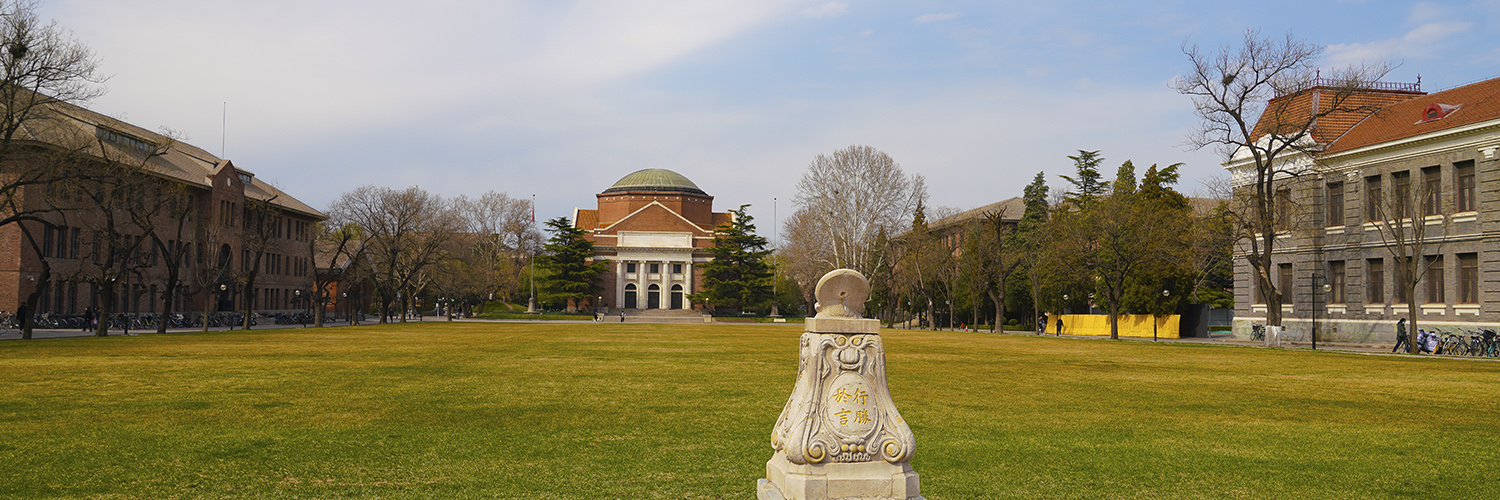性别与科学史 (全英授课)
Gender and the history of science
| 课程名称 | 中文名称 | 性别与科学史 |
| 英文名称 | Gender and the history of sciences | |
| 教学目标 | 《性别与科学史》 属于科学史范畴,本课程是研究生讨论课(seminars),以导读文本和师生讨论为主。我们将从四大重要历史分段探讨性格与科学史的联系,分别是:中世纪基督教、早期现代科学革命、19世纪末科学家专业化、20世纪科技医领域的女性主义。除此以外,我们也会介绍一些科学史家运用的分析工具去书写性别与科学史的关系。
本课程将采用Angela Creager, Elizabeth Lunbeck, and Londa Schiebinger 合编的Feminism in Twentieth-Century Science, Technology, and Medicine(二十世纪科技医的女性主义)为课本,配以Mary Wyer 等合编的Women, Science and Technology: A Reader in Feminist Science Studies (女性、科学与技术:女性主义科学研究读本) 为主要教材。本课程面对有意从事科学史研究领域的在读生全面系统地了解性别在科学史知识产生和发展的地位和角色,在拓宽学生的知识面和视野的同时,培养和提高研究生独立分析问题的能力。 |
|
| 课程类别 | 研究所专业课 | |
| 学分 | 2 | |
| 授课语种 | 英语 | |
| 考核方式 | 考试() 考查(√) | |
| 指定教材 |
1. Angela Creager, Elizabeth Lunbeck & Londa Schiebinger, eds. Feminism in Twentieth-Century Science, Technology, and Medicine. University of Chicago Press, 2001. 2. Mary Wyer, Mary Barbercheck, Donna Geisman, Hatice Orun Ozturk & Marta Wayne eds. Women, Science and Technology: A Reader in Feminist Science Studies (3rd edition). Routledge, 2014 [2001].
|
|
Course Description
| This is a graduate-level seminar in the history of science. We begin by exploring classical scholarship centered on four important periods in the origin of gendered science: medieval Christianity, the early modern scientific revolution, the professionalization of scientists in the late nineteenth century, and twentieth-century feminism in science, technology, and medicine. We then turn to a series of well-developed analytical tools employed by historians of science and gender, and finally to recent scholarship. In all cases, we will seek to analyze the intricate relationship between gender and the writing of the history of science. |
Assessment scheme
| Grade % | Attendance + Classroom participation: 20%
Book reviews (*3): 30% (Choose one book from the below list of reference books and write a book review/report of no less than 1000 words. Each report accounts for 10%. You should write 3 reports in total.) Final term paper: 50% (Write a final term paper of no less than 5000 words of a chosen topic agreed by the instructor) |
Reference books
Choose one book from the below list of reference books and write a book review/report of no less than 1000 words. Each report accounts for 10%. You should write 3 reports in total:
Hamblin, Kimberly A. From Eve to Evolution: Darwin, Science, and Women’s Rights in Gilded Age America (University of Chicago Press, 2014), pp. 247+
Keller, Evelyn F. Reflections on Gender and Science: Tenth Anniversary Paperback Edition (Yale University Press, 1996 [1986]), pp. 212+
Milam, Erika L. Looking for a Few Good Males: Female Choice in Evolutionary Biology (The Johns Hopkins University Press, 2010), pp. 247+
Richardson, Sarah S. Sex Itself: The Search for Male & Female in the Human Genome (University of Chicago Press, 2013), pp. 320+
Roughgarden, Joan. Evolution’s Rainbow: Diversity, Gender, and Sexuality in Nature and People (University of California Press, 2013 [2004]), pp. 602+
Subramaniam, Banu. Ghost Stories for Darwin: The Science of Variation and the Politics of Diversity (University of Illinois Press, 2014), pp. 297+
Schiebinger, Londa. The Mind Has No Sex? Women in the Origins of Modern Science (Harvard University Press, 1989), pp. 365+
. Nature’s Body: Gender in the Making of Modern Science (Rutgers University Press, 2013 [1993]), pp. 289+
Sterelny, Kim and Paul E. Griffiths. Sex and Death: An Introduction to Philosophy of Biology (University of Chicago Press, 1999 [1979]), pp. 231+
All of the reference books are available on the web learning platform
Teaching schedule
| Week
|
Topic
|
Date
|
Content | |
| 1
|
Introduction: course arrangement and learning expectation | TBD | Go through the syllabus, assessment methods, book lists, and exam arrangement | |
| 2 | Gendering the history of science | TBD | · Ludmilla Jordanova, “Gender and the Historiography of Science.” British Journal for the History of Science 26 (1993): 469-83.
· Dorinda Outram, “Gender” in Katherine Park and Lorreaine Daston, eds. Cambridge History of Science, Part IV Cultural Meanings of Natural Knowledge (Cambridge University Press, 2008), pp. 797-817. |
|
| 3 | Sexual order in antiquity and early Christianity | TBD | · Nathan Sidoli, “Learned Man and Woman in Antiquity and the Middle Ages,” in Bernard Lightman, A Companion to the History of Science (Wiley Blackwell, 2016), pp. 25-38.
· Peter Brown, The Body and the Society: Men, Women, and Sexual Renunciation in Early Christianity (Columbia University Press, 1989), pp. 3-209 |
|
| 4 | Scientific Revolution and the Death of Nature | TBD | · Carolyn Merchant. The Death of Nature: Women, Ecology, and the Scientific Revolution (San Francisco: HarperCollins, 1980) 中译本:吴国盛 等译,《自然之死: 妇女、生态和科学革命》吉林人民出版社,1997.
· Carolyn Merchant, “The Scientific Revolution and The Death of Nature,” Isis (2006) 97: 513–33. |
|
| 5 | Sex and gender in the Renaissance and early modern Europe
|
TBD
*Submit book review #1 |
· Londa Schiebinger, The Mind Has No Sex? Women in the Origins of Modern Science (Harvard University Press, 1989), pp. 1-188 | |
| 6 | Women and natural philosophy | TBD | · Carolyn Merchant, “The Violence of Impediments:’ Francis Bacon and the Origins of Experimentation,” Isis 99 (2008): 731-60.
· Londa Schiebinger, “The Philosopher’s Beard: Women and Gender in Science,” in Roy Proctor ed. Cambridge History of Science, Vol. 4: Eighteenth-Century Science (Cambridge University Press, 2003), pp. 184-210. |
|
| 7 | Women and natural history
|
TBD | · Londa Schiebinger, “Why Mammals Are Called Mammals: Gender Politics in Eighteenth-Century Natural History,” American Historical Review 98 (1993): 382-411.
· Londa Schiebinger, “Women of Natural Knowledge” in Katherine Park and Lorreaine Daston, eds. Cambridge History of Science, Part II Personae and Sites of Natural Knowledge (Cambridge University Press, 2006), pp. 192-205. |
|
| 8 | The embodiment of mechanical philosophy | TBD | · Peter Dear, “A Mechanical Microcosm: Bodily Passions, Good Manners, and Cartesian Mechanism,” and Simon Schaffer, “Regeneration: The Body of Natural Philosophers in Restoration England,” in Christopher Lawrence and Steven Shapin, eds. Science Incarnate: Historical Embodiments of Natural Knowledge (University of Chicago Press, 1998), pp. 51-120. | |
| 9 | Scientific Masculinity | TBD
*Submit book review #2 |
· Janet Browne, “Botany for Gentlemen: Erasmus Darwin and the Loves of the Plants,” Isis 80 (1989): 593-621.
· Erika Milam and Robert Nye, “An Introduction to Scientific Masculinities,” Osiris 2015 (3): 1-14. |
|
| 10 | Women and the professionalization of science | TBD | · Paul White, “The Man of Science,” and Cyrus Mody, “The Professional Scientist,” in Bernard Lightman, A Companion to the History of Science (Wiley Blackwell, 2016), pp. 153-178.
· Mary J. Nye, “Aristocratic Culture and the Pursuit of Science: The De Broglies in Modern France,” Isis 88(1997): 397-421.
|
|
| 11 | Feminism and biology in the nineteenth century I | TBD
|
Cynthia E. Russett. Sexual Science: The Victorian Construction of Womanhood. Harvard University Press, 1991 (selected chapters) | |
| 12 | Feminism and biology in the nineteenth century II | TBD | Cynthia E. Russett. Sexual Science: The Victorian Construction of Womanhood. Harvard University Press, 1991 (selected chapters) | |
| 13 | Feminism and biology in the twentieth century I | TBD
*Submit book review #3 |
Angela Creager, Elizabeth Lunbeck & Londa Schiebinger, eds. Feminism in Twentieth-Century Science, Technology, and Medicine. University of Chicago Press, 2001 (selected chapters)
|
|
| 14 | Feminism and biology in the twentieth century II | TBD
|
Angela Creager, Elizabeth Lunbeck & Londa Schiebinger, eds. Feminism in Twentieth-Century Science, Technology, and Medicine. University of Chicago Press, 2001 (selected chapters)
|
|
| 15 | Review and revision | TBD | Review course materials and presentation on term papers |


